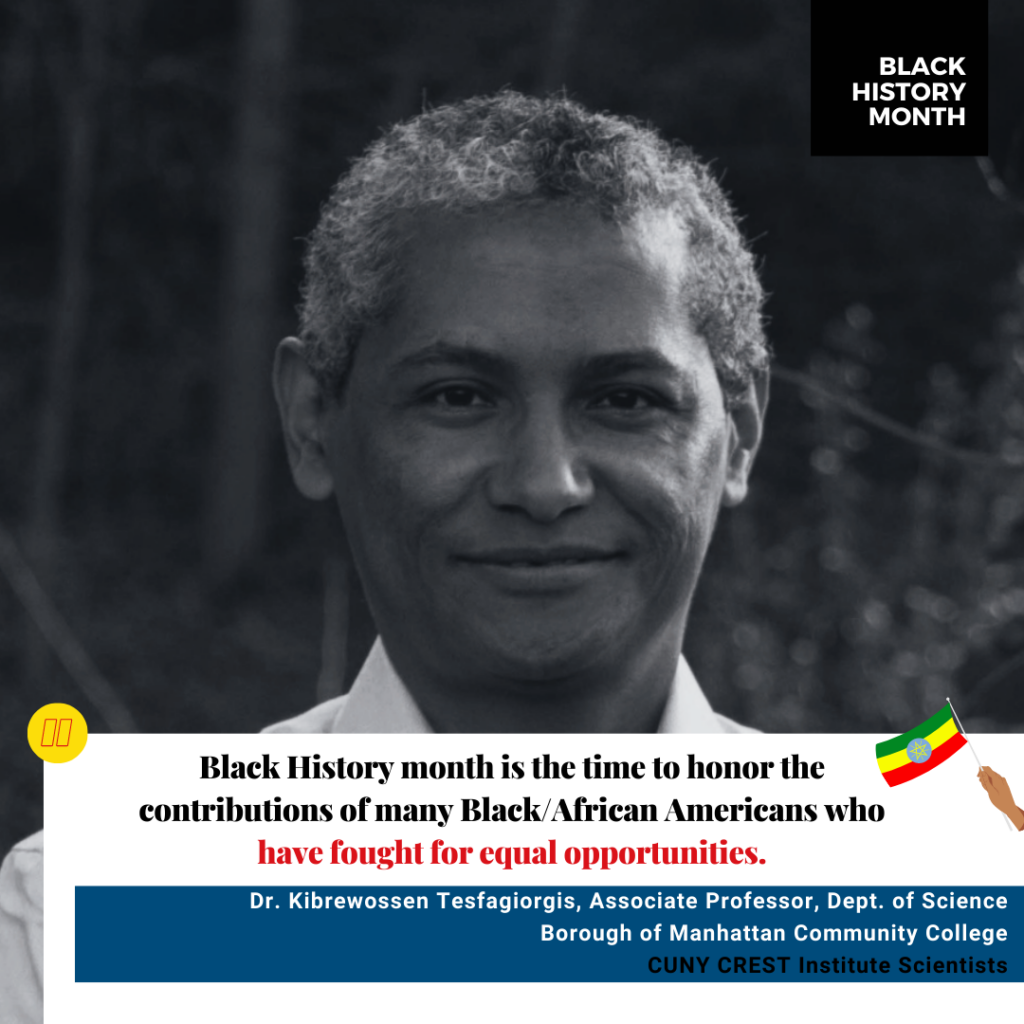Black History Month: Dr. Kibrewossen Tesfagiorgis
Interviewing Dr. Kibrewossen Tesfagiorgis
Dr. Kibrewossen Tesfagiorgis is an Associate Professor in the Department of Science at the Borough of Manhattan Community College (BMCC). Dr. Tesfagiorgis has previously been a part of projects that involves developing a Global Flooding Monitoring System, managing the world’s water resources, utilizing MATLAB, and utilizing satellite datasets for his flooding projects.
How has your identity as a Black/African American scientist influence your profession?
Growing up in Ethiopia, I always wanted to be an engineer. After finishing my Bachelor’s degree from the Civil Engineering department, Mekelle University (Ethiopia), I worked as an assistant lecturer in the same department where I earned my degree. While teaching engineering courses, I was also actively participating in the MU-IUC research program. As part of the research program, I travelled around different parts of the region to collect hydrologic data such as rainfall, river flow, groundwater table etc. The more I got involved in research in hydrology, the more I was attracted to the subject matter. Early and extensive exposure to research inspired me to continue my studies in hydrology. After working for two years at Mekelle University, I moved to Belgium to study my Master’s degree in water resources engineering. After finishing my Master’s degree, I moved to NYC to pursue my PhD.
You are a role model for many of our students. What advice would you give Black/ African American youth interested in Earth Systems science?
Early and extensive exposures to the field is critical for those transitioning into the Earth Systems sciences. Hence my advice is: initiate early network with your peers and mentors, reinforce your knowledge throughout the curriculum by attending seminars and conferences, have a role model who is working in the Earth Systems field, get sufficient information about Earth Systems related careers, seek advice from your seniors when you feel overwhelmed by the pace and workload of graduate studies in the Earth Systems field. CREST had helped me to foster all these critical elements.
What does Black History Month mean to you?
For me, Black History month is the time to honor the contributions of many Black/African Americans who have fought for equal opportunities.
The CUNY CREST Institute gives thanks to Dr. Kibrewossen Tesfagiorgis and our other amazing scientists participating in our interview! We are proud and honored to have you as part of our team, for not only your great work and success but also to serve as a role model and leader to students, partners, stakeholders, and other communities we serve at the CUNY CREST Institute.

